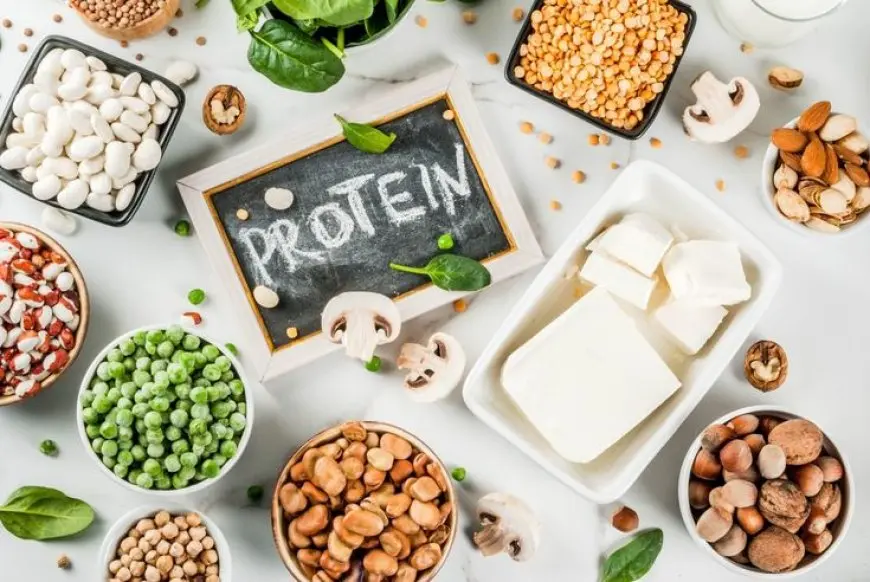How to Get Enough Protein on a Vegan Diet
How to Get Enough Protein on a Vegan Diet

One common concern about a vegan diet is whether it provides enough protein to meet the body’s needs. Protein is essential for building and repairing tissues, producing enzymes and hormones, and maintaining overall health. Fortunately, a well-planned vegan diet can easily supply all the protein your body requires by including a variety of plant-based protein sources.
Understanding Protein Needs
Protein is made up of amino acids, nine of which are essential and must come from food. While some plant-based proteins are incomplete (lacking one or more essential amino acids), combining different foods can provide a complete amino acid profile. Adults typically need around 0.8 grams of protein per kilogram of body weight daily, though needs can vary based on activity levels and health goals.
High-Protein Foods on a Vegan Diet
Legumes
Beans, lentils, chickpeas, and peas are excellent sources of plant-based protein. A cup of cooked lentils provides about 18 grams of protein, while chickpeas and black beans offer around 15 grams per cup. These versatile foods can be used in soups, stews, salads, or as the base for dishes like hummus or bean burgers.
Tofu, Tempeh, and Edamame
Soy products are complete protein sources, meaning they contain all nine essential amino acids. Tofu can be grilled, baked, or stir-fried, while tempeh adds a nutty flavor and texture to meals. Edamame (young soybeans) makes a great snack or salad topping, providing about 17 grams of protein per cup.
Quinoa and Other Whole Grains
Quinoa is a high-protein grain that is also a complete protein, with 8 grams per cooked cup. Other protein-rich grains include farro, bulgur, and oats. Incorporate these into meals as sides, in salads, or as a breakfast base.
Nuts and Seeds
Almonds, walnuts, chia seeds, hemp seeds, and flaxseeds are nutrient-dense and rich in protein. Hemp seeds, in particular, are a powerhouse, offering about 10 grams of protein per 3 tablespoons. Add them to smoothies, oatmeal, or sprinkle them over salads and yogurt alternatives.
Plant-Based Protein Powders
For those with higher protein needs, plant-based protein powders made from pea, hemp, or brown rice protein can be an easy way to boost intake. These can be mixed into smoothies, baked goods, or oatmeal.
Seitan
Seitan, made from wheat gluten, is a protein-rich meat substitute containing about 21 grams of protein per 3-ounce serving. It works well in stir-fries, sandwiches, or as a meat alternative in many dishes.
Vegetables
Certain vegetables, like broccoli, spinach, Brussels sprouts, and asparagus, contain surprising amounts of protein. While not as protein-dense as legumes or grains, they can contribute to your daily intake when combined with other sources.
Vegan Dairy Alternatives
Plant-based milks, yogurts, and cheeses made from soy or almonds often have added protein. Check labels to choose fortified options with higher protein content.
Tips for Meeting Protein Needs on a Vegan Diet
- Combine Protein Sources: Pairing grains with legumes, such as rice and beans or hummus and whole-grain pita, creates a complete protein.
- Plan Ahead: Ensure each meal contains a source of protein by prepping in advance and keeping your pantry stocked with essentials like beans, lentils, and nuts.
- Snack Wisely: Keep high-protein snacks, such as trail mix with nuts and seeds or roasted chickpeas, on hand to meet daily goals.
- Eat Enough Calories: Getting enough overall calories is essential for your body to use dietary protein efficiently.
Debunking the Protein Myth
A well-balanced vegan diet provides more than enough protein for most people. By eating a variety of plant-based foods, you can meet your daily protein needs without relying on animal products.
Whether you're an athlete, looking to build muscle, or just aiming to stay healthy, vegan diets can support your protein requirements effectively while offering numerous health and environmental benefits.







